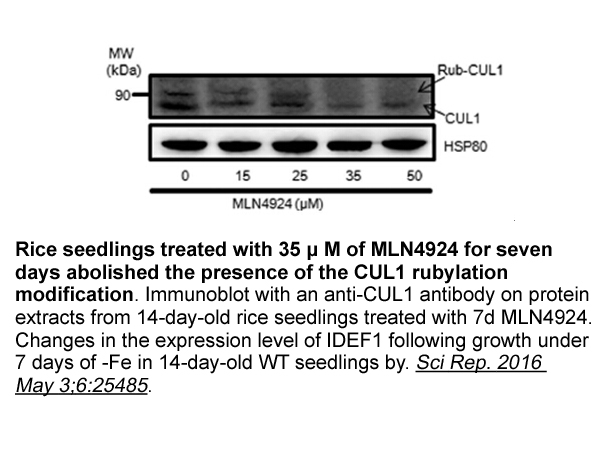Archives
In the pleural exudates which reflect
In the pleural exudates, which reflect the in vivo conditions, the concentrations of CysLTs and PGE2 were quite similar. However, when cancer (R,S)-Anatabine were cultured for 24 h, both analyses of cell culture medium and cell incubations with Ca2+ ionophore showed low levels of CysLTs. In contrast, the predominating eicosanoid formed by cancer cells in culture was PGE2. In view of our previous findings with A549 cells and their exosomes [15], we then incubated the cancer cells with exogenous LTC4, to determine possible high capacity for LTD4 biosynthesis. Indeed, in these incubations with LTC4, the formation of pro-tumorigenic LTD4 was in the same range as for the PG biosynthesis capacity. Thus, it appears possible that in the cancer tissue, formation of LTD4 and PGE2 could be of similar magnitudes, if another cell type provides sufficient amounts of LTC4, for transcellular metabolism to LTD4. Macrophages are abundant in malignant pleural exudates [18], particularly M2-primed macrophages have high capacity to produce LTC4 [21]. We isolated monocytic cells (including macrophages) from six pleural exudates. When these were incubated with ionophore A23187, high levels of LTC4 were formed, suggesting that monocytic cells may deliver large amounts of LTC4 to cancer cells for further conversion to pro-tumorigenic LTD4. Other cells producing LTC4 which may be present in cancer tissue are mast cells and eosinophils [29]. Furthermore, pleural exudate exosomes contained the enzyme (GGT-1) converting LTC4 to LTD4, and their capacity for this conversion was in the same range as found before for other leukotrienes biosynthesis steps [16]. Thus, formation of LTD4 in lung cancer tissue could be substantial.
In the in vitro assays of migration and survival of isolated cancer cells, the low levels of LTD4 produced by the cancer cells alone were obviously sufficient for the observed migratory effects which were sensitive to montelukast. When the cancer cells were treated with pleural exudates-exosomes, CysLTs (particularly LTD4) in cancer cell culture medium increased about 4-fold, indicating that the exosome effect on migration and survival was related to LTD4 formation. This is also in agreement with our previous finding that BAL-derived exosomes of asthma patients increased CysLT formation in bronchial epithelial cells [30]. Within a tumor tissue containing multiple cell types which could metabolize and degrade LTs, a higher transcellular formation of LTD4 should increase the potential of LTD4-mediated effects on in vivo cancer cell motility and survival.
LTD4 is the most potent agonist of CysLT1, the receptor antagonized by montelukast. CysLT1 expression is increased in several malignancies, including prostate, colon and breast cancer [4,31]. Here cancer cells from 12 pat ients expressed CysLT1 (Fig. 2), and died in the presence of montelukast (IC50 ∼6 μM) mainly by apoptosis, in agreement with previous studies on prostate cancer [31], neuroblastoma [32], chronic myeloid leukemia cell lines [19] and lung cancer cell lines [7]. Ample evidence supports a pro-tumorigenic effect of LTD4 but not LTC4 in colorectal cancer, see Ref. [4] for review. Thus, conversion of LTC4 to LTD4 should be important, for the effect of CysLTs in cancer progression. GGT-1 efficiently catalyzes this conversion, and overexpression of GGT-1 has been linked with several cancer types, including colorectal and lung cancer [33,34]. LTD4 formation can also be catalyzed by GGT-5, which however is slower acting [15,35], so the GGT-1 in the exosomes is likely to contribute to rapid LTD4 formation. In line with this, serum exosomes from patients with malignant prostate cancer possess higher GGT-1 activity compared to exosomes from patients with benign forms [36]. We here show here that exosomes and cells from stage IV lung cancer pleural exudate contained biologically relevant amounts of GGT-1, and promptly formed LTD4 in incubations with LTC4 (Fig. 5) underlining a potential role for exosomes in leukotriene-mediated cancer progression. This is further supported by our previous finding that exosomes from the non-small cell lung cancer cell line A549 catalyze LTD4 formation [15].
ients expressed CysLT1 (Fig. 2), and died in the presence of montelukast (IC50 ∼6 μM) mainly by apoptosis, in agreement with previous studies on prostate cancer [31], neuroblastoma [32], chronic myeloid leukemia cell lines [19] and lung cancer cell lines [7]. Ample evidence supports a pro-tumorigenic effect of LTD4 but not LTC4 in colorectal cancer, see Ref. [4] for review. Thus, conversion of LTC4 to LTD4 should be important, for the effect of CysLTs in cancer progression. GGT-1 efficiently catalyzes this conversion, and overexpression of GGT-1 has been linked with several cancer types, including colorectal and lung cancer [33,34]. LTD4 formation can also be catalyzed by GGT-5, which however is slower acting [15,35], so the GGT-1 in the exosomes is likely to contribute to rapid LTD4 formation. In line with this, serum exosomes from patients with malignant prostate cancer possess higher GGT-1 activity compared to exosomes from patients with benign forms [36]. We here show here that exosomes and cells from stage IV lung cancer pleural exudate contained biologically relevant amounts of GGT-1, and promptly formed LTD4 in incubations with LTC4 (Fig. 5) underlining a potential role for exosomes in leukotriene-mediated cancer progression. This is further supported by our previous finding that exosomes from the non-small cell lung cancer cell line A549 catalyze LTD4 formation [15].